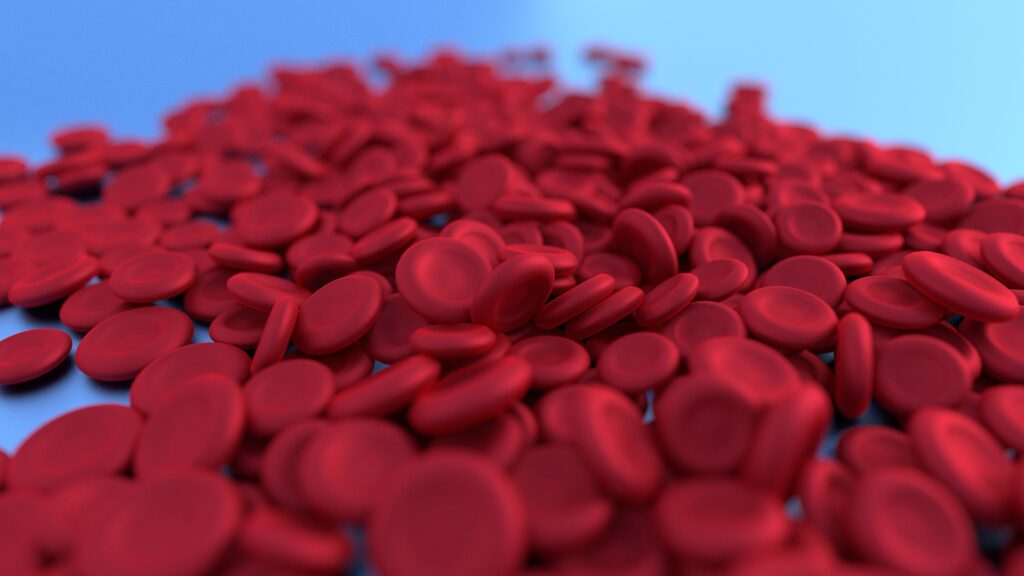There are several causes of anaemia but in this article, we would be discussing 3 of the most common causes of anaemia, how to prevent and manage cases of anaemia effectively.
What is Anaemia?
Anaemia is a condition where your Red Blood Cells drops lower than normal, hampering the supply of oxygen to the organs of your body. The red blood cell is responsible for carrying oxygen from the lung to all organs of the body, when there is a significant drop in the number of RBC in your body you experience some of the symptoms we would discuss shortly.
Symptoms
Anaemia typically present these symptoms;
- Shortness of breath.
- Fatigue
- Jaundice
- Pale skin
- Feeling dizzy or light-headed
- Irregular heartbeat
These symptoms are indications that you may be having low RBC and need immediate medical care. You must see a doctor if you have any of the above symptoms. Book an appointment here.
- Loss of blood:
You can get anaemia because of gradual or excessive loss of blood, through an injury, surgery or any case that leads to excessive blood loss. Because of the drop in your blood level, your body tries to compensate for this by drawing up fluid from other tissues to keep the blood vessels filled. Since your body can not make RBC that quickly especially in cases of rapid blood loss, the level of RBC drops drastically leading to anaemia.
When your anaemia is because of blood loss you experience
- A drop in blood pressure.
- Body oxygen levels equally drop drastically.
- You may require a transfusion.
Contact your doctor immediately, this can be fatal if the cause of the bleeding is not identified and appropriate treatment is given. Book to see our Doctor here.
- Destruction of the red blood cell (Hemolytic anaemia):
A normal RBC lives about 120 days before it dies and your body replaces it. But certain conditions could lead to a rapid destruction of the red blood cell faster than the body can produce. This reduction of RBC leads to anaemia. Chiefly among the cause of this condition is;
- Blood cancer like leukaemia,
- Viral or bacterial infections,
- An overactive spleen (hypersplenism)
- Some antibiotics and antimalarial medications
- Malformed or Decrease production of The Red Blood Cell:
Blood cells are produced in the bone marrow, any disease that affects the bone marrow would affect the production of healthy blood cells. Conditions that could lead to malformed or decreased production of RBC are;
- Sickle Cell Diseases: The Red Blood Cell produced by the bone marrow is sickle-shaped thus cannot carry enough oxygen around the body. Because of the shape of the blood cells, they could get stuck in blood vessels, hampering the supply of oxygen and causing excruciating pain. The blood cells also do not last up to 120 days which in cases where the body does not produce enough to meet up the shortfall leads to anaemia.
- Leukaemia: A cancer of the blood-forming tissues including the bone marrow, this condition makes the bone marrow produce excessive malformed white blood cells which hamper the body’s ability to fight diseases, also reduces the production of RBC in the body.
Other causes of Anaemia are;
- Iron deficiency anaemia: Iron is an important component required in the production of red blood cells, if iron is deficient in your diet you stand the risk of anaemia.
- Vitamin B12 deficiency: Deficiency of vitamin B12 also known as folate leads to the production of abnormally excessively large Blood cells which reduces the ability to supply oxygen around the body.
What to do if suspect Anaemia?
If you experience any of the symptoms described above, you should see your doctor right away and get properly examined. Book an appointment here.
Diagnosis
- Full blood Count: a full blood count test is carried out to measure every part of your blood, this provides a comprehensive analysis of your blood that will provide your doctor with the right information about your condition.
- Test for the level of iron in your body: The serum iron and serum ferritin test are carried out to check for iron deficiency.
- Test for lack of vitamin B12 and folic acid is also carried out to determine vitamin-deficient anaemia.
Treating Anaemia
Depending on the cause of the anaemia, some of the following are steps your doctor may take to help you get better;
- Blood transfusion
- Oxygen therapy
- Pain relief
- Folic acid supplements
- Iron supplements
Preventing Anaemia
- Lifestyle changes would help you live a healthier life
- Dietary changes to include iron-rich food and folates would help prevent iron and vitamin B12 deficient anaemia.

